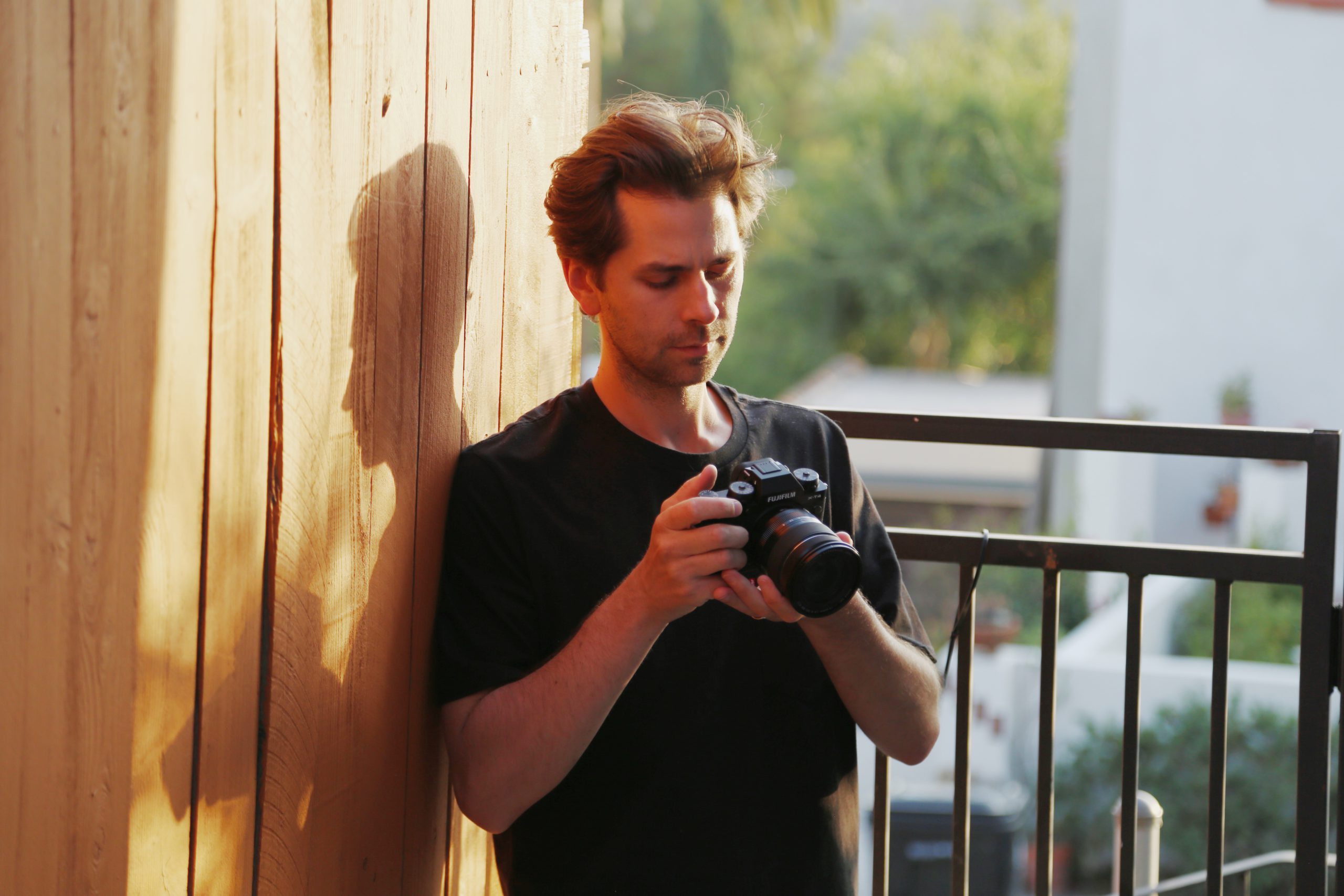York alumnus Noam Kroll is an independent filmmaker based in Los Angeles. With a background as a director, writer, business owner, podcaster, editor, colourist, and cinematographer (on top of other roles), Noam embodies the DIY filmmaker ethos. And this begs the question: is there anything Noam can’t do?
After completing his undergraduate degree in psychology at York University, Noam continued his lifelong passion for writing and directing short films – a habit he’s cultivated since childhood. His hard work landed him more gigs with music videos, advertising campaigns, and other videography projects.
In 2009, Noam founded Creative Rebellion, a corporate video production company specializing in visual content for businesses; some of his past clients include Banana Republic, NBC Universal, Jiffy, and Google.
His diverse experiences made him a perfect match for feature films. In 2020, he applied his skills to his crowd-funded feature, backed by the Duplass Brothers, called Psychosynthesis. The film was just released for free on Youtube and has gone viral, garnering over 90, 000 views as of August 1.
Recently, Noam launched The Backlot, a private online filmmaking community where he teaches low-budget/ DIY techniques to help filmmakers with their feature documentary and fiction projects. He also writes a personal blog/ newsletter focusing on filmmaking and creativity.
Noam discusses with Excalibur his upcoming no-crew feature, Disappearing Boy, and shares his valuable perspective for filmmakers and creators.
Our interview began by discussing the beginning paths for filmmakers, particularly the perennial debate of “Should I go to film school or not?” Noam emphasises how there’s no right or wrong approach. Depending on the individual’s needs and situation, each path has benefits and drawbacks.
“Any path as a filmmaker is challenging and is going to have a lot of ups and downs and setbacks,” he says. “All the things that you need to succeed as a filmmaker, you have to do whether you go to film school or not. It’s a matter of what sort of assets you can leverage in and hopefully, give yourself an upper hand to break into the business.”
Noam stresses the importance of patience throughout the filmmaking process, especially when facing challenges — obstacles and failures are inevitable parts of the process.
He explains: “A lot of people think, ‘Well, I went to film school, so I should just get this good job,’ and they don’t get it. Then they say, ‘Well, that was a waste of time, I’ll go into accounting or something,’ or someone risks it on their movie, and then it doesn’t get into any festivals. Then they think they’re no good. But that’s how you learn — that’s how you figure out what you want to do.
At the beginning of your career, just know it’s going to take a long time. As long as you’re okay with that, and you just keep trying, then you tend to get ahead no matter what your starting point might be.”
Whether it is a novel, painting, or film, risk is inherent to any creative pursuit. Creators never know if their work will be liked, financially viable, or even seen. Sometimes, parents steer their children into a safer and more secure career path, fearing the instability and uncertainty of certain fields. Society also tells individuals to find stable work, to protect themselves from potential adversity and hardship.
But, Noam offers a different perspective: people should reassess the risk. He believes that not taking action and putting your aspirations aside is a missed opportunity.
“What happens if you don’t get a stable job?…What is the personal risk to myself of not following my ambitions? Of not following my creative dreams and aspirations? What’s the risk of not having control over my destiny, as a filmmaker and as a business person?” asks Noam.
When making Disappearing Boy, Noam challenged himself with a new, innovative approach. Over a year, he shot the feature film with no crew and little to no financial backing during the COVID-19 pandemic.
“I came up with this idea that I could shoot myself, and at a time where things were tapering off […] Ever since I was in high school, I was shooting and editing my own videos and making little projects.”
Noam shot for a few days, then took a few weeks or months off to re-edit and re-shape the narrative. His unconventional approach allowed him to re-learn more technical filmmaking skills.
“I got away from being as hands-on as I like to be. I used it as an opportunity to try to tap into all these skills like cinematography, sound recording, and editing. And then challenged myself to do it all and to keep the budget as close to $0 as possible.
What better way to show people that anybody could make a movie than to do something basically for no money and with no crew? If I could do that, I honestly think anyone could. There’s nothing different about me than anyone else.”
With Disappearing Boy, he stripped the medium down to its fundamentals. A process that freed him from preconceived notions, styles, or trends, and where he rediscovered the essence of filmmaking — storytelling. By focusing on the story, he reminded himself about the importance of being personal and truthful.
“It’s cliche, but make it personal or truthful to you, in some way […] that tends to lead to the best outcome,” Noam adds.
Noam has released an upcoming teaser trailer of Disappearing Boy.
Part two of our interview will explore his work strategies, thoughts on artificial intelligence, and his new feature film project, Teacher’s Pet.




